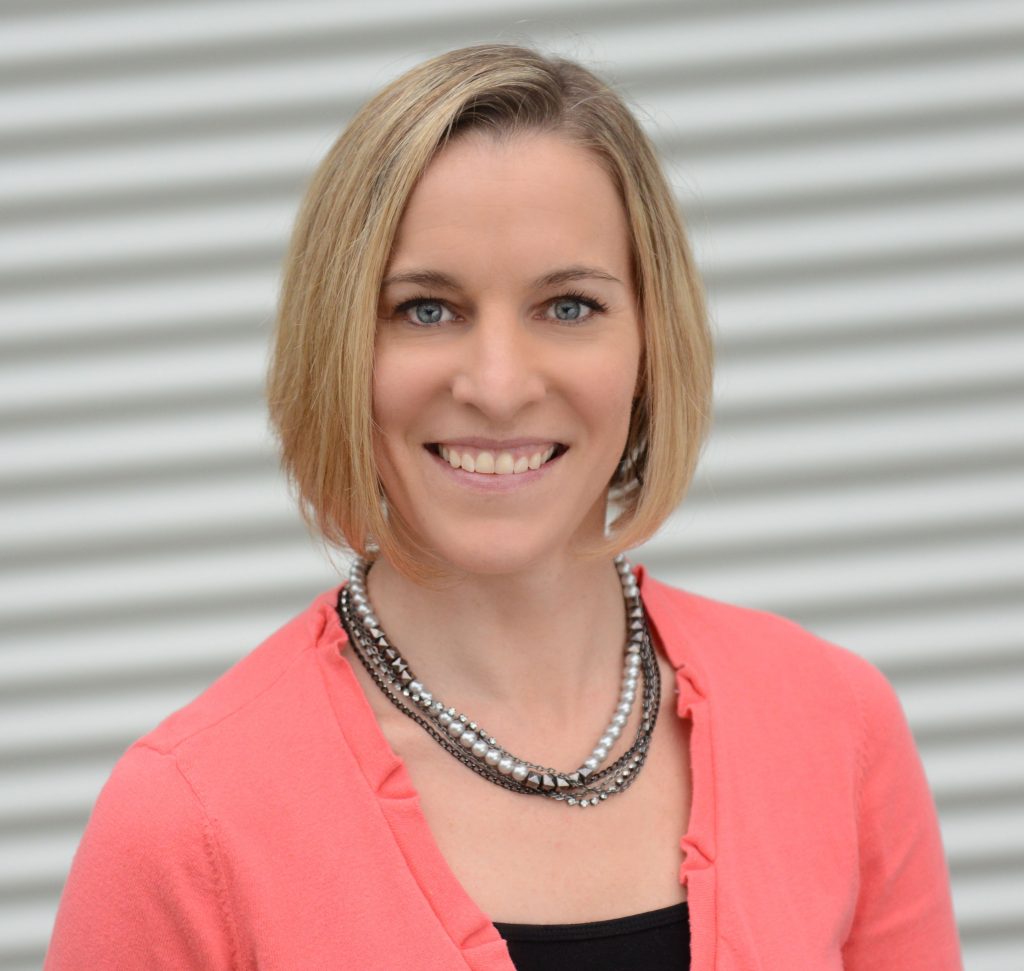

Lesley Duncan graduated with a BA in Psychology (Honours) in 2002, followed by an MA in 2005, and a PhD in Social Psychology in 2009.
Three-time UBC Psychology graduate Lesley Duncan’s pursuit of knowledge and passion for psychology is making room for social science research at the boardroom table.
Putting her psychology background to good use, Duncan is now the Chief Scientific Officer and co-founder of Distill Analytics. Distill Analytics commercializes social science research by generating assessments of the psychological drivers that are linked to human performance. To assist company executives and management teams, the company creates algorithms to provide data-driven assessments and insights into team dynamics and performance; military, security, and intelligence profiling; decision-making; and leadership, collaboration, and negotiation strategies. This is just some of the work that Distill Analytics does and it is the first to commercialize this method of data assessment.
In this Q&A, Duncan discusses her mentors at UBC, why she chose to study psychology, and how psychology has shaped her career and fed her curiosity.
What is your current career?
Currently I have two careers. I’m the Chief Scientific Officer – and one of three co-founders – of a company called Distill Analytics. Distill commercializes social science research developed by Dr. Peter Suedfeld at UBC as well as researchers at other academic institutions around North America. We are applying this research to novel contexts (e.g., creating data-driven assessments of the executive management teams of public companies) and working to increase the speed at which these analyses can be executed, with the eventual goal of automation.
In my other career, I also do program evaluation which allows me to work with a variety of populations including doctors, sex workers, government clients, and at-risk youth, among many more.
Why did you choose to study psychology at UBC?
I initially came to UBC as an Applied Science student and quickly discovered that wasn’t what I really wanted to do. I switched into Arts, and realized that Psychology had both the problem solving and scientific rigour that had initially drawn me to Engineering as well as a people focus, so it was the best of both worlds.
Was there anything or anyone who inspired you?
Beyond being my official supervisor, Mark Schaller instilled in me a respect for science. Through him I learned that there is a humility required for the pursuit of knowledge – that it isn’t about you as a scientist, but about the contribution that you’re making to the field. That said, I also learned from him to celebrate the victories because you’ve worked hard for them!
Dr. Catherine Rawn was in my cohort at graduate school, and I was lucky enough to share an office with her. During that time, we started a friendship that continues to this day. Working with her on initiatives like the Graduate TA training program demonstrated to me that if you want something and are willing to work for it, you can make it happen. Her dedication to her work, her inclusive nature, and her ability to bring out the best in the people she works with continue to inspire me even now.
Dr. Elizabeth Dunn gave me the confidence I needed exactly when I needed it as I was trying to decide whether I wanted to pursue an academic career path or transition to the real world.
What advice would you give to students considering studying psychology?
I would tell them that the Psychology Department at UBC is full of amazing people who love to share what they study. Psychology is a very diverse field, so there is plenty of opportunity to find something that interests you. Beyond topic knowledge, learning about the process of psychology research and how it is carried out teaches you how to be a critical thinker, a savvy consumer of media and facts, and helps you understand your social environment. If this sounds interesting, then psychology might be for you.
In your experience, how does the value of a psychology degree translate into the real world?
The first job that I got after finishing my PhD was in market research, so a lot of the skill set was directly applicable (e.g., sampling, writing surveys, research methodology, statistics, etc.). My psychology background allowed me to quickly move up in the organization and allowed me access to some of the most interesting projects my company worked on. However, ‘real-world’ applications of a psychology degree do not end at career opportunities. In fact, one of the most satisfying real-world applications of my knowledge from psychology was in the application for an apartment I was trying to rent. I used every research outcome I could to my advantage (similarity contributes to liking, Cialdini’s persuasion techniques, etc.), and ended up getting the apartment.
In your own words, how has UBC shaped your career?
In addition to the knowledge gained throughout my education, UBC has had a rather large impact on at least two phases of my career to date. I met the person who initially hired me in market research at a presentation he gave to graduate students in the psychology department at UBC (he had also earned a PhD in Social Psychology from UBC). I also met one of my Distill co-founders socially through a friend from graduate school (he was the manager of the lab she worked in). The tools that Distill Analytics is working to bring to market were developed in large part by Dr. Peter Suedfeld in the Social area of the Psychology Department at UBC, and have a strong research grounding.
Beyond that very important social connection, many of the people that I’ve met through the years I spent at UBC continue to be great friends, and I’ve found unexpected overlaps in terms of work opportunities. For example, I had the chance to collaborate with a friend of mine on the reporting of a qualitative research project; her organization had started the project, but needed support in bringing the insights together.
What’s been the most exciting part about co-founding your own company?
The most exciting part about co-founding Distill Analytics is carrying out the mission of increasing the utility of knowledge that has been created by academics. There are so many brilliant people doing great things in academia, yet there is generally a disconnect in how to properly translate, use and apply their findings in the ‘real world’.
Distill is working with a text analysis methodology that has been demonstrated to provide insight into how individuals are thinking and as a result, how they may act. We are currently running a variety of back tests to see how these analytics function when applied to the financial world. We are looking at quarterly earnings calls as input, which is a novel application of these metrics. Everyday we come across new opportunities and possible test cases, which feeds my research curiosity; at the same time, we’re making critical strategic decisions about the company which reinforces my desire to continuously learn and better understand the world around me.
On a day-to-day level there is also the sheer number of things that you have to learn as you go. There are the logistics, taxes, business development, responsibilities to employees, internal systems, and so on – any number of areas in which I didn’t have prior experience, but our team has come together to figure them out.
Do you have a motto?
This is a really fun question. I did a bit of research and crowdsourcing among friends and colleagues because I was having a hard time with it. This ended up being a great opportunity for reflection. I discovered the reason I was having trouble was not that I don’t have a motto, it’s that I don’t have just one. In no particular order:
- If I don’t know, I’ll learn.
- Everything in moderation, including moderation.
- Crazy like a fox.
- Don’t underestimate me. I know more than I say, think more than I speak, and notice more than you realize.
That last one may be less of a motto and more of a description of how I like to work.
Get in touch with Lesley Duncan on Twitter at @lesleyduncan and Distill Analytics at @Distillytics.


